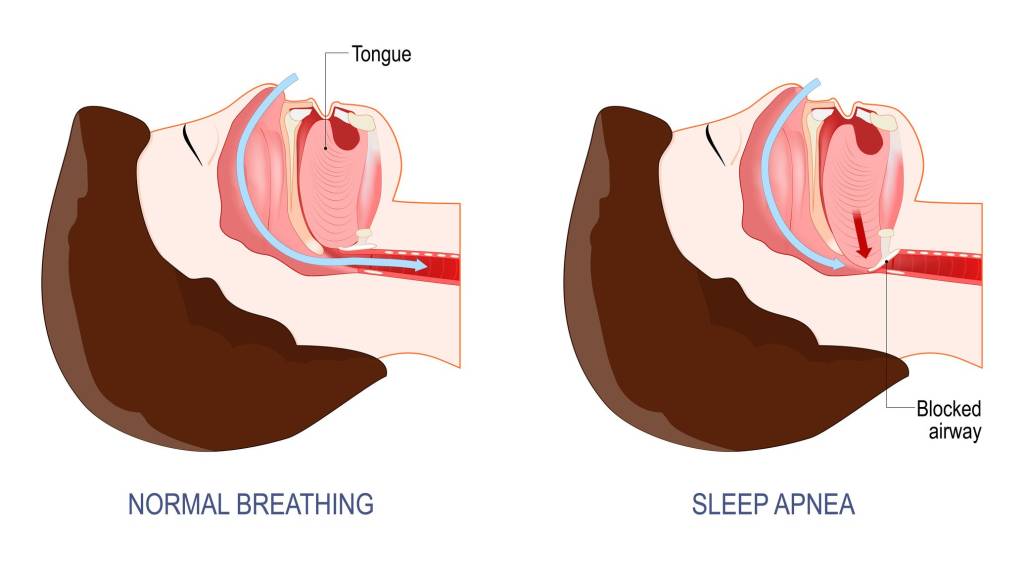In an episode of the Saia Justa program, Eliana decided to leave her characteristic discretion aside and share an unusual fact with the other participants: she and her partner, director Adriano Ricco, sleep in separate rooms. The reason? O husband snores!
“Sometimes it happens at home. It has nothing to do with being well or not… No. It has to do with 'I need to work tomorrow' or he needs to work in the morning. And then, we do that. Because there is…. A little noise issue at home, and sometimes I really can’t sleep,” she said.
Jokes aside, snoring can become an issue not only for those who suffer from it, but also for those who sleep in the same room. Find out more below:
WHAT IS SNORING
According to the otorhinolaryngologist and ear, nose and throat surgeon at Santa Cruz Hospital, Dr. Mohamad Feras Al-lahhamo Noise is caused by the narrowing or obstruction of the upper airways during sleep, which consequently hinders the passage of air and causes vibration of these structures.
Almost everyone snores from time to time, but for some people it can be a problem. chronic problem. Sometimes it can also indicate a serious health problem.
It is often associated with a sleep disorder called obstructive sleep apnea (AOS), a syndrome that affects more than 936 million people worldwide, according to The Lancet magazine – one of the most important scientific publications in the world. “Not every patient who snore have apnea, but anyone who suffers from this problem is probably snore”, emphasizes Mohamad.
WHEN IT'S A PROBLEM
Not all snorers have OSA, but if snoring is accompanied by any of the following symptoms, it may be an indication to see a doctor for further evaluation for OSA:
- Breathing pauses during sleep;
- Excessive daytime sleepiness;
- Difficulty concentrating;
- Morning headaches;
- Sore throat when waking up;
- I'm nervous;
- Panting or choking at night;
- High blood pressure;
- Chest pain at night;
- Your snoring is so loud that it is disturbing your partner's sleep;
- In children, insufficient attention, behavioral problems or poor performance at school.
OSA is generally characterized by loud snoring followed by periods of silence when breathing stops or almost stops.
Eventually, this reduction or pause in breathing may signal you to wake up, and you may wake up to your own loud snoring or panting sound.
People with obstructive sleep apnea often experience periods when breathing becomes slower or to at least five times during each hour of sleep.
CAUSES OF SNORING
Snoring can be caused by several factors, such as the anatomy of your mouth and sinuses, alcohol consumption, allergies, a cold, and your weight.

As the image shows, when you doze off and go from light sleep to deep sleep, the muscles in the roof of your mouth (soft palate), tongue and throat relax. Throat tissues may relax enough to partially block the airway and vibrate (illustration at right).
The narrower the airways, the stronger the airflow becomes. This increases tissue vibration, which makes the snoring louder.
The following conditions can affect the airways and cause snoring:
Having a thick, low soft palate can narrow your airways. Overweight people may have extra tissue in the back of their throat that can narrow their airways. Likewise, if the triangular piece of tissue hanging from the soft palate (uvula) is elongated, the air flow may be obstructed and vibration increased.
Snoring can also be caused by drinking too much alcohol before bed. Alcohol relaxes the throat muscles and lowers their natural defenses against airway obstruction.
A chronic nasal congestion or a crooked partition between the nostrils (deviated nasal septum) can contribute to snoring.
Not getting enough sleep can lead to the throat becoming more relaxed.
Snoring is usually more frequent and louder when sleeping on your back, as the effect of gravity on the throat narrows the airways.
In this case, it is possible that there is fat accumulationaround the trachea, which makes it difficult for air to pass through.
RISKS OF UNTREATED SNORING
O habitual snoring it can be more than just a nuisance.
“Sleep is critical for neurological and physical performance and can negatively impact emotional health in just a few days. In addition to marital problems and social embarrassment caused by snoring intense, for example, sleep disorders can lead to a worsening of sexual activity and quality of life, in addition to professional problems, with irritability and a drop in productivity” informs Dr. Bruno Duarte, otorhinolaryngologist and coordinator of the Department of Sleep Medicine at ABORL-CCF (Brazilian Association of Otorhinolaryngology and Surgery Cervico-Facial).
In addition to interrupting your partner's sleep, if your snoring is associated with OSA, you may be at risk for other complicationsincluding:
- Daytime drowsiness;
- Frequent frustration or anger;
- Difficulty concentrating;
- Increased risk of hypertension, heart problems and stroke;
- An increased risk of behavior problems, such as aggression or learning problems, in children with OSA;
- An increased risk of motor vehicle accidents due to lack of sleep.
TREATMENTS FOR SNORING
Lifestyle changessuch as losing fat, avoiding alcohol close to bedtime, or sleeping on your side, can help stop snoring.
Furthermore, medical devices and surgeries are available to reduce disruptive snoring. However, they are not suitable or necessary for everyone who snores.
“In the office, the first thing that needs to be done is to determine what causes the snoring or sleep apnea. From this, it is necessary to find out whether the problem has an obstructive origin such as a deviated septum, hypertrophy of the inferior turbinate, chronic sinusitis, nasal polyps, among other pathologies”, says Dr. Mohamad.
According to the doctor, the best solution to correct these dysfunctions needs to be created together with the otorhinolaryngologist.
“If it is chronic rhinitis, for example, we always start with medication and monitor the progress. However, most cases are surgical and require some time to rest, although recovery generally occurs quickly”, he explains.




